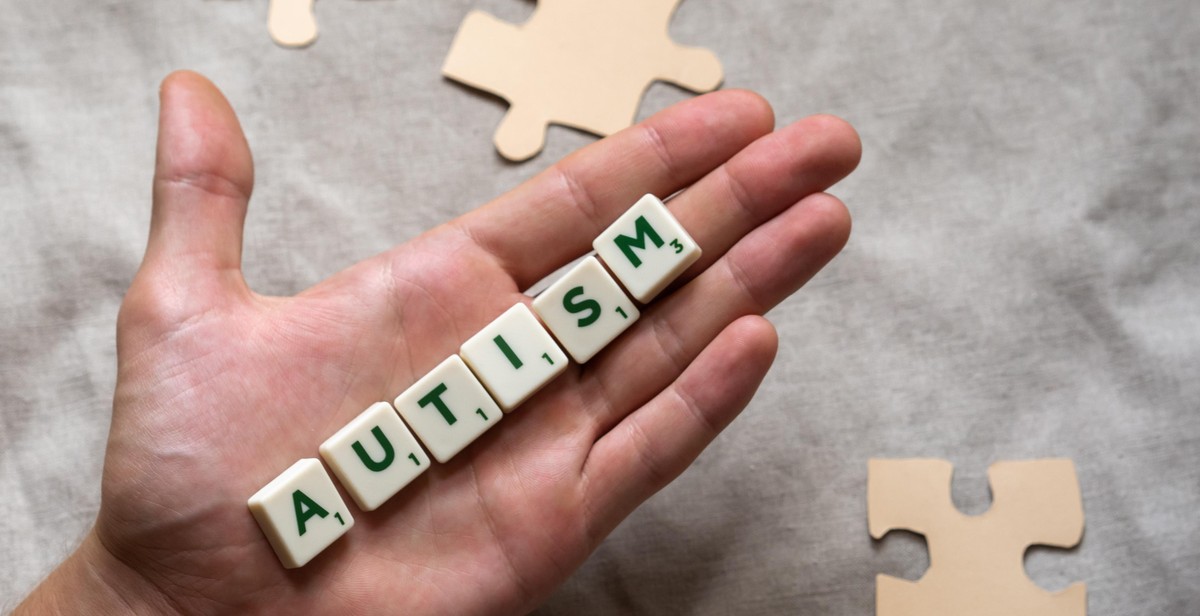Parenting Children with Autism: A Focus on Mental Health
Parenting a child with autism can be a challenging experience. As a parent of a child with autism myself, I understand the unique struggles and joys that come with raising a child on the spectrum. One of the most important aspects of parenting a child with autism is focusing on their mental health.
Children with autism often struggle with social and communication skills, which can lead to feelings of isolation and anxiety. As parents, it is our responsibility to provide a safe and supportive environment for our children to grow and thrive. This includes addressing their mental health needs.
In this article, I will share my personal experience and insights on parenting a child with autism, with a specific focus on mental health. I will discuss the importance of early intervention, the role of therapy and medication, and practical tips for promoting positive mental health in children with autism.
If you are a parent of a child with autism, or if you work with children on the spectrum, this article will provide valuable information and resources to help you support the mental health of these special children.

Understanding Autism Spectrum Disorder (ASD)
Autism Spectrum Disorder (ASD) is a complex neurodevelopmental condition that affects individuals differently. It is characterized by difficulties in social interaction, communication, and repetitive behaviors. The condition is called a spectrum disorder because it affects individuals differently, and symptoms can range from mild to severe.
Signs and Symptoms of ASD
Early signs of ASD can be observed in children as young as 18 months, but the condition is often diagnosed around the age of 2-3 years. Some of the common signs and symptoms of ASD include:
- Difficulty in social interaction and communication
- Lack of interest in playing with other children
- Difficulty in understanding non-verbal cues such as facial expressions, tone of voice, and body language
- Repetitive behaviors such as hand flapping, rocking, and spinning objects
- Intense fixation on certain objects or topics
- Difficulty in adapting to changes in routines or environment
- Delay in speech or lack of speech
It is important to note that not all individuals with ASD will exhibit all of these symptoms. Some may have other symptoms or may exhibit these symptoms to a different degree. It is also important to note that some individuals with ASD may have exceptional skills in certain areas such as music, art, or mathematics.
| Severity Level | Description |
|---|---|
| Mild | Individuals with mild ASD may have some difficulties in social interaction and communication, but they can function relatively independently. |
| Moderate | Individuals with moderate ASD may have more significant difficulties in social interaction and communication, and they may require more support and assistance in daily living. |
| Severe | Individuals with severe ASD may have significant difficulties in social interaction, communication, and behavior, and they may require constant support and assistance in daily living. |
If you suspect that your child may have ASD, it is important to seek a professional evaluation from a qualified healthcare provider. Early diagnosis and intervention can greatly improve outcomes for individuals with ASD.

The Importance of Mental Health in Parenting Children with Autism
Parenting children with Autism Spectrum Disorder (ASD) can be challenging for many reasons. Children with ASD may have difficulty communicating, socializing, and understanding social cues. This can make it difficult for parents to build strong relationships with their children and can lead to feelings of frustration and isolation.
Challenges Faced by Parents of Children with ASD
Parents of children with ASD often face a range of challenges that can impact their mental health. These challenges may include:
- Difficulty understanding their child’s needs
- Feeling overwhelmed by the demands of caring for a child with special needs
- Dealing with social isolation and stigma
- Financial strain due to the cost of therapy and other treatments
- Difficulty finding appropriate educational and social opportunities for their child
These challenges can lead to a range of mental health issues for parents, including anxiety, depression, and stress.
Impact of ASD on Mental Health of Parents and Children
The impact of ASD on the mental health of parents and children cannot be overstated. Parents may experience high levels of stress and anxiety as they try to navigate the challenges of raising a child with special needs. Children with ASD may also experience mental health issues, including anxiety, depression, and behavioral problems.
It is important for parents to prioritize their own mental health in order to better support their child with ASD. This may include seeking therapy or counseling, practicing self-care, and connecting with other parents who are also caring for children with special needs.
| Tip | Description |
|---|---|
| Connect with other parents | Join a support group or online community to connect with other parents who are going through similar experiences. |
| Practice self-care | Take time for yourself to do things that you enjoy, such as reading, exercising, or spending time with friends. |
| Seek therapy | Consider seeing a therapist or counselor to help manage stress and anxiety. |

Strategies for Promoting Mental Health in Children with ASD
Parenting a child with autism can be challenging, especially when it comes to promoting their mental health. However, with early intervention and treatment, positive reinforcement, establishing routines, encouraging communication, and providing a safe and supportive home environment, parents can help their children with autism develop strong mental health.
Early Intervention and Treatment
Early intervention is crucial for children with autism to develop their mental health. Parents should seek professional help as soon as possible to address any developmental delays and provide their children with the necessary therapies, such as occupational therapy, speech therapy, and behavioral therapy.
Positive Reinforcement
Positive reinforcement is an effective way to promote good behavior and mental health in children with autism. Parents should praise and reward their children for their accomplishments and good behavior. This will boost their self-esteem and encourage them to continue positive behavior.
Establishing Routines
Children with autism thrive on routine and structure. Parents should establish a regular schedule for their children, including meal times, play times, and bedtime. This will help them feel more secure and reduce anxiety.
Encouraging Communication
Communication is essential for mental health. Parents should encourage their children with autism to communicate their feelings and needs. They can use visual aids, such as pictures and symbols, to help their children communicate more effectively.
Providing a Safe and Supportive Home Environment
A safe and supportive home environment is crucial for promoting mental health in children with autism. Parents should create a calm and predictable home environment that is free from distractions and sensory overload. They can also provide their children with sensory toys and equipment to help them regulate their emotions and behavior.
By following these strategies, parents can help their children with autism develop strong mental health and lead happy and fulfilling lives.

Caring for the Mental Health of Parents of Children with ASD
Parenting a child with autism spectrum disorder (ASD) can be challenging and overwhelming. It is not uncommon for parents to experience stress, anxiety, depression, and other mental health issues as they navigate the complexities of raising a child with ASD. Therefore, it is essential for parents to prioritize their mental health and practice self-care.
Self-Care Strategies for Parents
Self-care is critical for parents of children with ASD because it helps them recharge, refocus, and maintain a positive outlook. Here are some self-care strategies that parents can incorporate into their daily routine:
- Take breaks when necessary
- Exercise regularly
- Meditate or practice mindfulness
- Engage in a hobby or activity that brings joy
- Get enough sleep
- Eat a balanced diet
- Practice self-compassion and positive self-talk
Seeking Professional Help
Parents of children with ASD should not hesitate to seek professional help if they are struggling with their mental health. Mental health professionals can provide support, guidance, and treatment options to help parents manage their stress and improve their overall well-being. It is essential to find a mental health professional who is knowledgeable about ASD and can offer specialized support.
Building a Support Network
Building a support network is crucial for parents of children with ASD. It is helpful to connect with other parents who are going through similar experiences and can offer empathy, understanding, and practical advice. Joining a support group, attending parent training, or seeking out online communities can be a great way to build a support network. Additionally, it is essential to communicate with family, friends, and caregivers about the challenges of parenting a child with ASD and ask for help when needed.
| Self-Care Strategies | Seeking Professional Help | Building a Support Network |
|---|---|---|
| Take breaks when necessary | Find a mental health professional | Connect with other parents |
| Exercise regularly | Get support, guidance, and treatment options | Join a support group |
| Meditate or practice mindfulness | Find a mental health professional who is knowledgeable about ASD | Attend parent training |
| Engage in a hobby or activity that brings joy | Communicate with family, friends, and caregivers about the challenges of parenting a child with ASD | Seek out online communities |
| Get enough sleep | Ask for help when needed | |
| Eat a balanced diet | ||
| Practice self-compassion and positive self-talk |

Conclusion
Parenting a child with autism can be challenging, but prioritizing their mental health can make a significant difference in their overall well-being. As a parent of a child with autism myself, I understand the importance of not only addressing their behavioral needs but also their emotional needs.
It is crucial to seek professional help when necessary and to understand that mental health support is just as important as physical health support. Building a support system and educating oneself on autism and mental health can also be beneficial.
Remember, each child with autism is unique, and what works for one child may not work for another. It is essential to approach each situation with an open mind and a willingness to adapt and learn.
By prioritizing mental health and seeking the appropriate resources and support, parents can help their children with autism lead fulfilling and happy lives.
Key Takeaways
- Addressing mental health is crucial for children with autism
- Professional help and support systems can make a significant difference
- Each child with autism is unique and requires an individualized approach
References
| 1. | “Autism Spectrum Disorder (ASD).” National Institute of Mental Health, U.S. Department of Health and Human Services, www.nimh.nih.gov/health/topics/autism-spectrum-disorders-asd/index.shtml. |
| 2. | “Mental Health.” Autism Society, 2021, www.autism-society.org/living-with-autism/how-can-i-help-my-child/mental-health/. |
| 3. | “Parenting a Child With Autism: Tips to Make Family Life Easier.” Mayo Clinic, Mayo Foundation for Medical Education and Research, 20 Mar. 2021, www.mayoclinic.org/diseases-conditions/autism-spectrum-disorder/in-depth/parenting-child-with-autism/art-20047952. |
